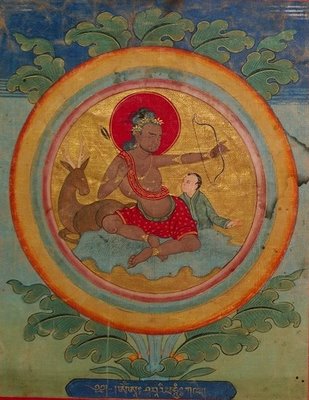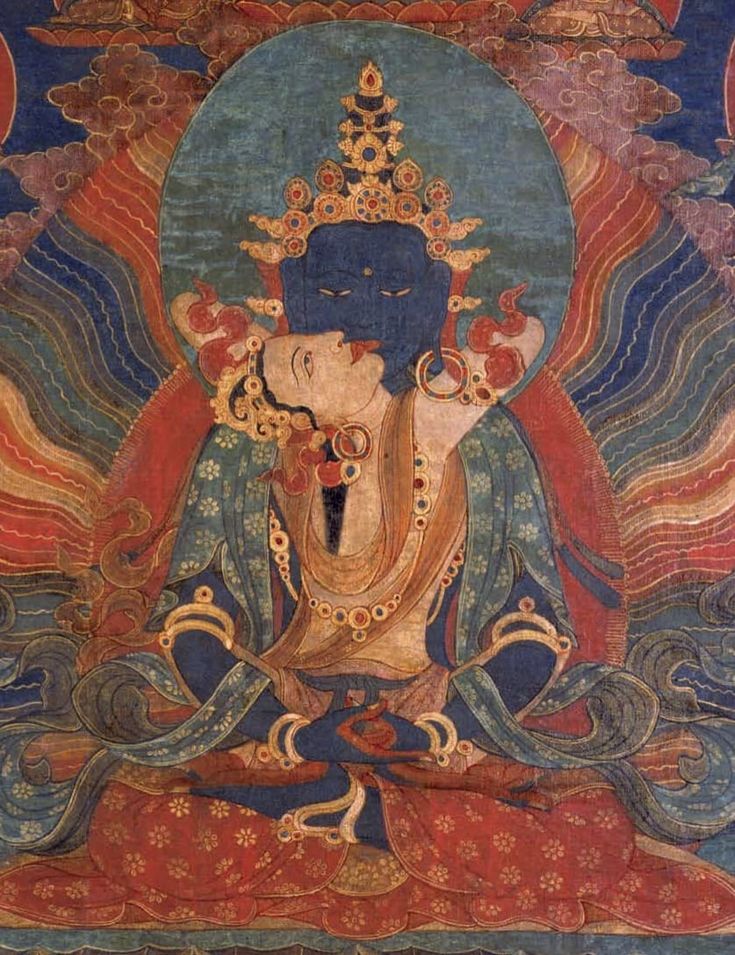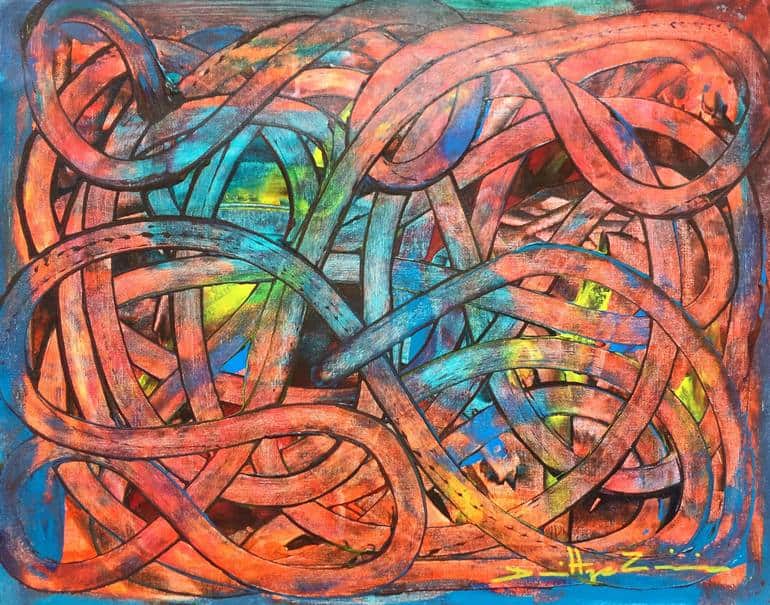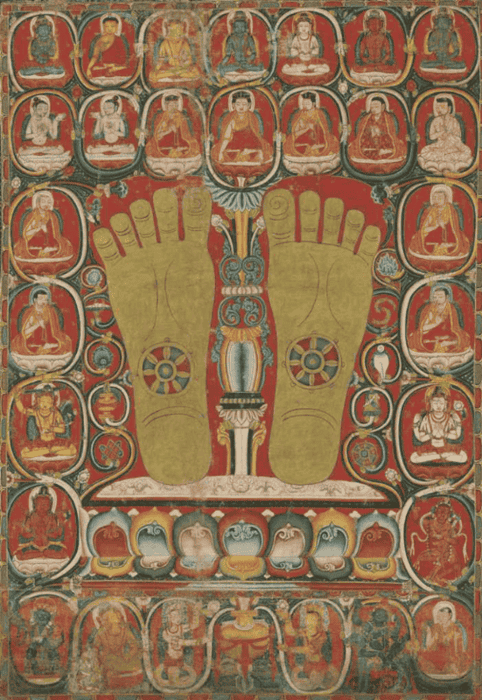In the process of searching for all that manifests as mind and matter
There is neither anything to be found nor is there any seeker,
For to be unreal is to be unborn and unceasing
In the three periods of time.
That which is immutable
Is the state of great bliss.
Savaripa

I thought I’d share this quote from Savaripa (Shavaripa) – the eighth century India mahasiddha.
Mahamudra meditation uses insight or vipassana meditation methods just like any other Buddhist path. Indeed, surprising to some it uses a lot of questioning, which is often thought to be more the realm of Madhyamika rather than Mahamudra. The texts don’t always tell you how you work with questions – leading to the impression that it’s a conceptual investigation. This couldn’t be further from the truth.
One the mind is resting (through Mahamudra Shamatha) you can then turn mind on itself, and pose a question:
Where is my mind?
Once this question is posed, don’t seek to intellectually understand the answer. Just rest in the what follows. Should a gap arise, then rest in that gap. Don’t seek to do anything other than rest, right there. Whatever that shift is like – rest there. However comfortable or uncomfortable it is – just rest there.
After a while, you could pose another question:
Where is experience?
Again, let go of intellectual speculation, and just rest in what follows. If an experience of where experience *is*, or more likely, of where it *isn’t* arises, then rest in that. Should an experience of experience not being found arise, then rest in that. This is an insight into the lack of fixed location of experience – an characteristic that experience, or mind lacks.
Just rest there in that experience, if you can, and the experience may deepen. Or it might drop off, either into conceptualisation, or into distractedness.
What am I?
Rest there. You might find this seems to give rise to a shift. That shift may be related to what is arising in experience, and knowing that experience, to what knows that experience. Ultimately you may not be able to separate these – they are inseparable, but there’s a definite shift possible when changing questioning to this aspect.
I generally don’t ask ‘who am I?’ as that will most likely bring up all sorts of connotations which might not be helpful.
Rest in the shift
In this way we use the conceptual aspect of the mind to pose questions, and rest in whatever arises out of this.
When you are able to rest in the shift that results from both these types of questions, you may find a knowing arises, a knowing that there is nothing to be found, and no seeker either.
Please forgive my inane ramblings on practicing Mahamudra, inspired as they were by Savaripa’s beautiful song.





Hi,
Great quote! Where did you find it? Also, I was wondering if you may have come across a good biography of Savaripa.